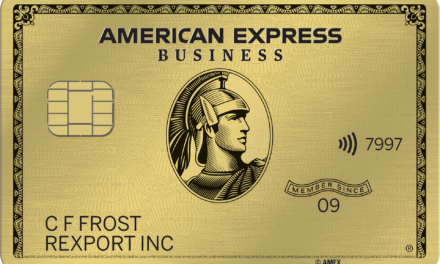Getting your first credit card is a huge milestone in life. It shows that you are trying to build your credit and become financially independent. Using your card responsibly can help you build a healthy credit profile. And a healthy credit profile can unlock a myriad of potential later on. You will be able to save money when hitting a plethora of financial milestones including renting an apartment, getting a car, and even buying your first house. This post features some of the best credit cards for beginners.
Furthermore, the term “beginner” as used in this post is relative. The cards featured are great for college students, recent graduates, adults who have never had a credit card before, or those who are rebuilding their credit.
The cards are divided by earning structures. Credit cards usually have three general earning structures: 5x rotating categories, flat rate, and bonus categories. Having one card with each type of earning structure is a popular and simple strategy for beginners.
5x Rotating Categories: Discover It
My first rewards credit card was a Discover It that I acquired during my last semester of college. I still have my Discover Card because it is my oldest active card and its an excellent earner.
Discover is known for helping those with thin credit files build their credit history. They also offer tools such as a free TransUnion credit score and a spend analyzer to help keep you organized. All Discover cards have no annual fee and earn cash back.
Discover does not offer a fixed sign-up bonus for any of its cards. But they will match the cash back that you earned in your first year of card-membership. Plus, those who have the Discover It Student Card and at least a 3.00 GPA will receive a $20 cash back bonus each semester. This can be up to $60 per school year, assuming you take fall, spring, and summer semester classes.
The Discover It for Students offers 5% cash back on quarterly rotating categories. For 2020, the categories are as follows:
- 1st Quarter: Grocery Stores, Walgreens, and CVS
- 2nd Quarter: Gas Stations, Uber, Lyft, and Wholesale Clubs
- 3rd Quarter: Restaurants and Pay Pal
- 4th Quarter: Amazon.com, Walmart.com and Target.com
The regular version is harder to get approved for. It might make sense to apply if you are not (or no longer) a student. I applied for the regular version as a student and I got approved with a small $500 limit. However, that limit has grown tremendously over the last few years. If you are a student, Discover might “graduate” your student card into a regular card after college graduation.
Flat Rate: Citi Double Cash
The Citi Double Cash has recently become a nice alternative for beginners, especially those who want to travel internationally. It earns a total of 2% cash back on all purchases. You will earn 1% upon making a purchase and another 1% upon paying your bill.
Furthermore, the best part about the Citi Double Cash is that you can transfer your cash rewards into Citi Thank You (TY) points. TY points are another great transferrable points currency for aspiring travelers. But Citi has different partners than Chase. Citi’s partners are mostly international airlines while Chase has more of a variety of partners. Every dollar in cash rewards earned is worth 100 TY points.
Thereafter, can transfer your points to the Citi Prestige or Citi Premier if you decide to open either of them later. This lets you take advantage of Citi’s transfer partners and travel the world for less. You can’t directly transfer to Citi’s partners (except JetBlue) with this card.
Unfortunately, the Double Cash does not have a sign-up bonus or come with any perks. But it is a great earner and a nice starter card for those who want to earn Citi TY Points.
Bonus Categories
Chase Freedom Unlimited
The Chase Freedom Unlimited and Freedom Flex are great choices if you’re interested in earning Chase UR points. That is because it earns 1.5x UR points on all purchases with no spend limits. Plus, it earns 5x on Travel from the Chase Travel Portal and 3x on Dining and Pharmacies.
Like the regular Freedom card, it offers a sign-up bonus worth 20,000 UR points (or $200 cash back). It can be earned after spending $500 in the first three months.
You can transfer your points to a Chase Sapphire card or Chase Ink Business Preferred if you decide to open either of them later. This lets you take advantage of Chase’s transfer partners and travel portal. You can’t transfer your points directly from this card.
American Express Everyday Card
The American Express Everyday Card is the only no annual fee card that lets you directly transfer Amex Membership Rewards (MR) points to transfer partners. That makes it not only a long-term keeper card, but a fantastic option for aspiring travelers. American Express MR points are another excellent transferrable points currency. They are a great alternative to Chase UR and Citi TY points for domestic and international travelers.
The Everyday Card earns 2x MR points at Grocery Stores and just one point for non-bonus spend. You will receive a 20% points bonus on all transactions if you use your card 20 times per calendar month. With the bonus, you will earn 2.4x points at Grocery Stores and 1.2x points for everything else.
Citi Rewards +
Unlike the Citi Double Cash Card, the Citi Rewards + earns Citi TY points directly. But it does not earn cash back like the Citi Double Cash does.
The Double Cash Card earns 2x points at Gas Stations and Grocery Stores. But the kicker with this card is that Citi rounds up the amount of points earned to the nearest 10 for all purchases. Such rounding is a bonanza for small purchases. For example, you will receive 10 points if you spend $1 at a convenience store.
Furthermore, the Rewards + Card offers a sign-up bonus worth 15,000 TY points (or $150). It can be earned after spending $1,000 in the first three months. This bonus is similar to that of the Chase Freedom Cards. However, the minimum spend is doubled and you are earning TY points.
You can transfer your points to the Citi Prestige or Citi Premier if you decide to open either of them later. This lets you take advantage of Citi’s transfer partners and travel the world for less. You can’t directly transfer to Citi’s partners (except JetBlue) with this card.
Final Draw
In essence, these cards are excellent options for those who want to build their credit. All of them have no annual fee and great earning structures. Therefore, you can keep them forever and let your credit history and age of accounts grow.
Most of these cards are also complements to bigger travel cards with annual fees and more perks. Therefore, you should figure out which transferrable points and partners are right for you based on your travel plans. Or you can earn cash back if you are not planning on traveling in the future.
Apply Today:




